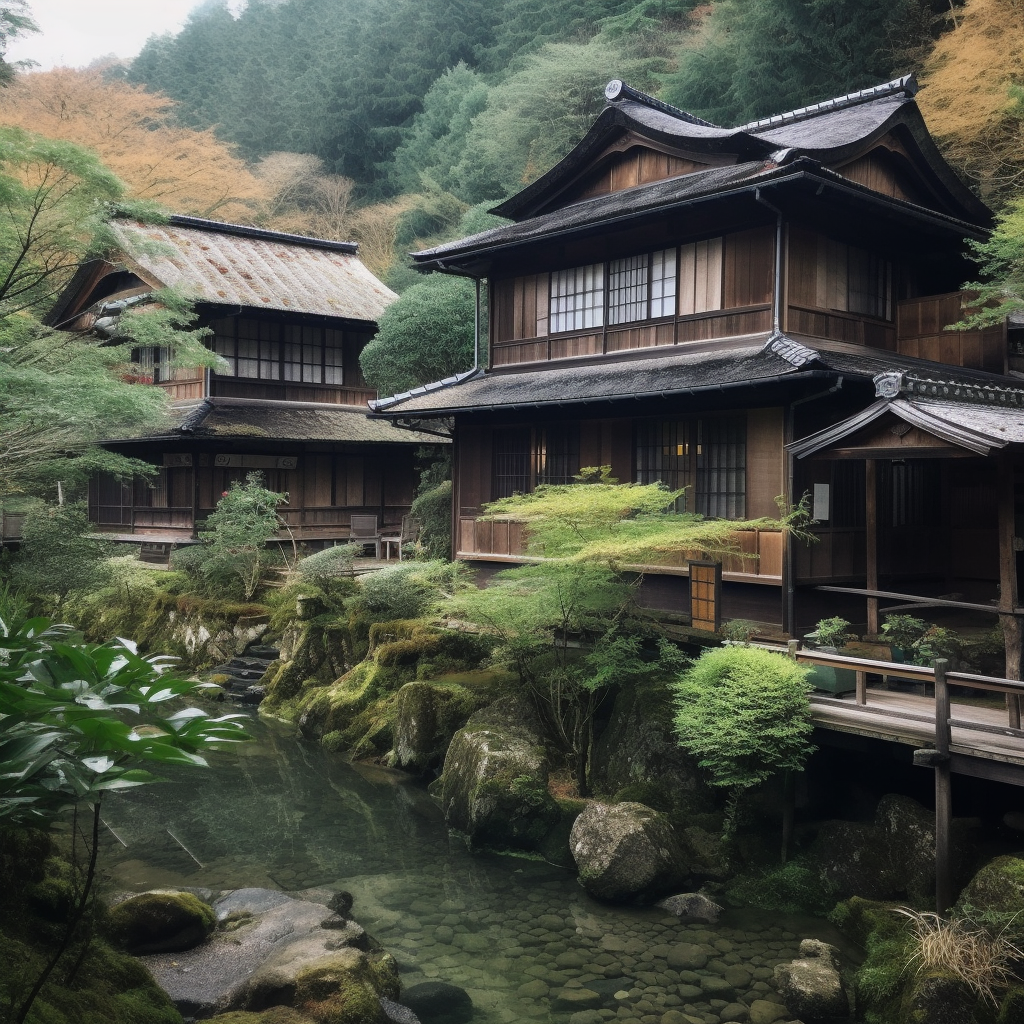Japan is known for its diverse and fascinating accommodations, with traditional ryokans and futuristic capsule hotels being two standout examples. In this post, we’ll explore these distinctive lodging options and how they provide visitors with a truly unique and memorable experience.
Capsule Hotels: Compact and Futuristic Spaces
Capsule hotels, also known as “capsule inns” or “capsule pods,” originated in Japan in the late 1970s. These innovative hotels offer guests an affordable, comfortable, and space-saving alternative to traditional accommodations. With their compact, futuristic design, capsule hotels are perfect for solo travelers, business people, or those seeking a unique overnight stay.
The Capsule Hotel Experience
Capsule hotels typically feature rows of small, rectangular capsules stacked on top of each other. Each capsule is usually about 2 meters long, 1 meter wide, and 1 meter high and includes a bed, a light, a small shelf, and an electrical outlet. Some capsules also come with a small TV or a privacy curtain.
Guests are assigned a specific capsule upon check-in and are provided with a locker for storing their luggage and personal belongings. The capsules are often separated by gender and located on different floors. Communal facilities such as showers, restrooms, and lounge areas are shared among guests.
Popular Capsule Hotels in Japan
- 9 Hours: Known for its minimalist and modern design, 9 Hours is a capsule hotel chain with locations across Japan, including Kyoto, Tokyo, and Osaka. With its sleek capsules and user-friendly amenities, 9 Hours is a favorite among travelers.
- Book and Bed: Combining a capsule hotel with a bookstore, Book and Bed offers guests a unique opportunity to sleep among bookshelves filled with hundreds of titles. With locations in Tokyo, Kyoto, and other cities, it’s a haven for book lovers.
- First Cabin: Taking inspiration from airplane cabins, First Cabin offers more spacious capsule rooms, known as “cabins.” With different cabin classes, including first-class and business class, guests can enjoy a more luxurious capsule hotel experience.
Ryokans: Traditional Japanese Inns
Ryokans are traditional Japanese inns that have been a part of Japan’s hospitality culture for centuries. Offering a serene and tranquil atmosphere, ryokans provide guests with an authentic taste of traditional Japanese lifestyle and hospitality.
The Ryokan Experience
Ryokans feature tatami-matted rooms with sliding paper doors (shoji) and low wooden tables. Futon bedding is laid out on the tatami floor for sleeping, and yukata (lightweight cotton kimonos) are provided for guests to wear during their stay. Many ryokans also have communal baths called “onsen,” which are natural hot springs that promote relaxation and rejuvenation.
Meals at ryokans are typically included and showcase traditional Japanese cuisine, known as kaiseki. These multi-course meals are a culinary experience, highlighting seasonal ingredients and local specialties.
Notable Ryokans in Japan
- Tawaraya Ryokan: Located in Kyoto, Tawaraya Ryokan is one of the oldest and most renowned ryokans in Japan. With its beautiful garden views and impeccable service, it offers a truly luxurious experience.
- Hoshi Ryokan: Established in 718, Hoshi Ryokan in Ishikawa Prefecture holds the Guinness World Record for the oldest hotel in the world. Steeped in history and tradition, Hoshi Ryokan has been run by the same family for 46 generations.
- Gora Kadan: Situated in Hakone, Gora Kadan
is a former imperial retreat turned into a luxurious ryokan. With its modern amenities, beautiful scenery, and private onsen baths, Gora Kadan provides a perfect blend of traditional Japanese charm and contemporary comfort.
- Asaba Ryokan: Nestled in the serene hot spring town of Shuzenji, Asaba Ryokan offers guests an exquisite ryokan experience surrounded by lush bamboo forests. Its refined elegance and exceptional service make it an unforgettable destination.
Capsule Hotels vs. Ryokans: Which to Choose?
When deciding between a capsule hotel and a ryokan, it’s essential to consider your travel preferences, budget, and overall goals for your trip. Capsule hotels offer an affordable, space-saving option for those seeking a futuristic and unique lodging experience, while ryokans provide a more traditional and serene environment for travelers looking to immerse themselves in Japanese culture and hospitality.
In conclusion, both capsule hotels and ryokans are integral parts of Japan’s diverse accommodation landscape. With their unique features and characteristics, these lodging options offer visitors the opportunity to experience the best of Japanese innovation and tradition. Whether you choose a cutting-edge capsule hotel or an elegant ryokan, your stay in Japan is sure to be a memorable one.

コメントを残す